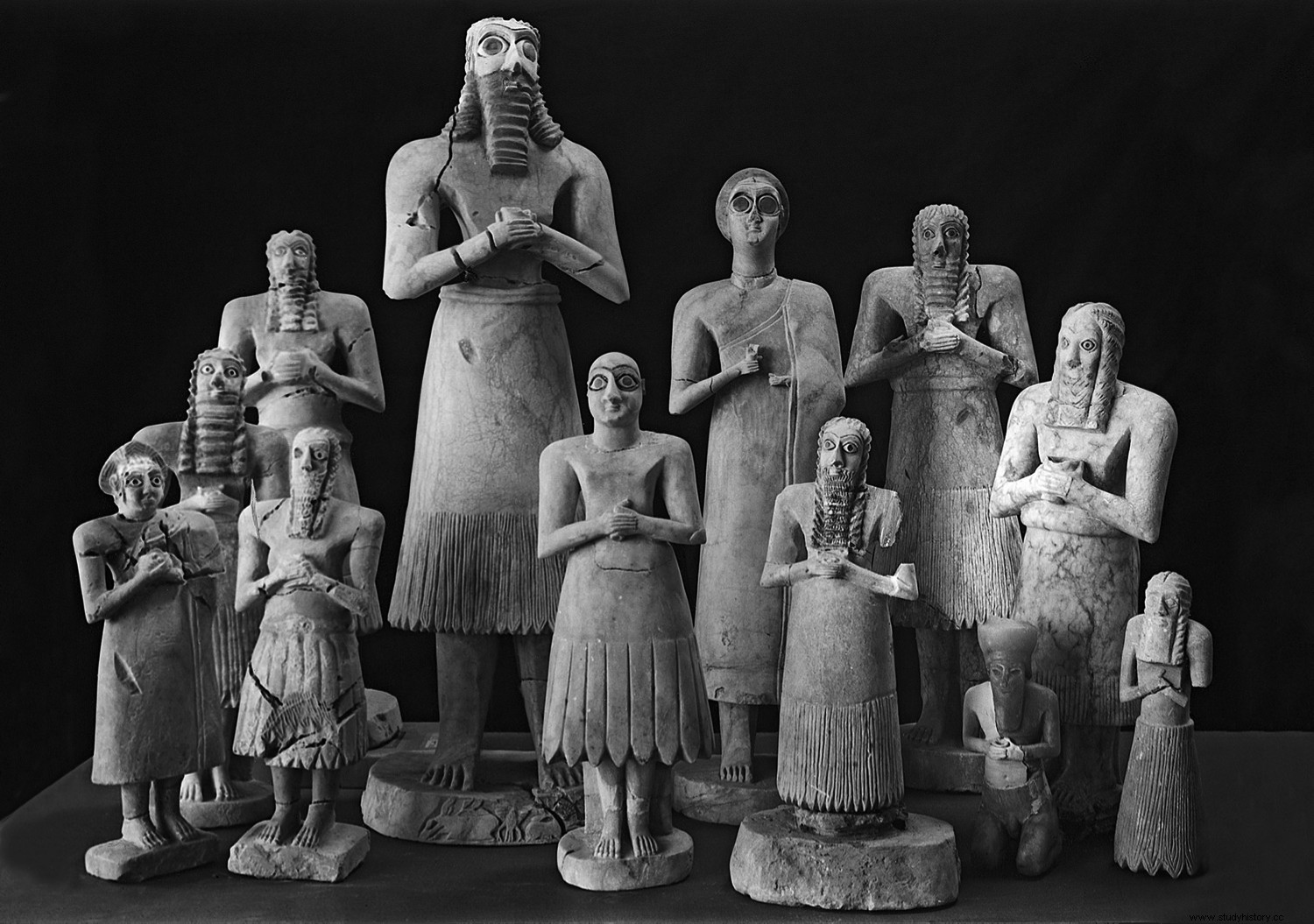In the Catholic religion there is the figure of the “guardian angel ”, which is like a personal angel who helps and protects. It doesn't hurt to have a supernatural character lend you a hand. And the Sumerians? The Blackheads had a pantheon of more than 3,600 gods. There were gods for all kinds of matters, from the most serious such as Justice (Nanshe ) or Literature and Writing (Nidaba ), and other more surreal, such as the fabric of clothing (Uttu ), the secrets (Buzur ) or toothache (Ninsutu ). One characteristic that was common to all of them is that they did not care about human beings. The men were to serve the divinities. The rest was irrelevant. Due to this, in the world of the two rivers, if a person got into trouble, suffered from an illness or needed, in short, a little supernatural help, one had to resort to one of these methods... and not die trying.

If you were rich, it was normal to resort to sacrifices. The Sumerian custom consisted of the sacrificial priest whispering the request into the animal's ear before slaughtering it, with the idea that it would transmit it to the gods. We do not know if the animal, in revenge for the beheading, transmitted the request in a bad way and with bad faith. In any case, if a sacrifice was not enough, the wealthy on duty could sacrifice another animal, only this time more expensive and chosen. If he had sacrificed a goose he could resort to a lamb. If he had already slaughtered a lamb or two, he could try an ox. The most ostentatious were the white ones, less than two years old and fed on beer. Taking into account that the animal was later consumed by the priests, we could conclude that the "Kobe Steak" was invented much earlier than is believed.
Bribery could also be used by promising gifts, as is done today. It was common for the wealthy to buy the clothing and trousseau of the gods, which not only consisted of tableware, but also parts of the body that were used to adorn the divine statues, such as penises, vulvas, wigs... Of course, it was from good taste to deliver a votive offering if grace was granted, and the most valued were those made of precious metals, especially silver. In extreme cases, a small-format statue of the beggar could even be given as a votive offering. The most vain dared with large statues, made of stone instead of clay, and with luxurious decorations, such as placing lapis lazuli eyes. The rulers used to do it, because not only did they look good with the gods, but they also showed off what was theirs to the poor.
A person with few financial resources could turn to his dead ancestors. As I have already told on occasion, the Sumerians thought that when they died they went to the "world on the other side » (hell), a place without rewards or punishments, tasteless, colorless, boring... In many Sumerian cities the deceased were buried under the floor of the house, usually next to the family altar that used to be in homes. Every day they were given some food and drink so that their spirits would not go hungry or thirsty. Although the food was insipid, being in the other world, it is well-born to be grateful, so if you had behaved well with your ancestors and had brought them some chop from time to time, they might be willing to annoy the god on duty to pay attention to you. You know, it's nothing personal, just "family matters".
But this method had an obvious problem. And it is that who had been a nobody in life, also was after death. Therefore, it is hardly believable that a god would be impressed by a dead mindundi giving him the ember. For this reason, every Sumerian had an emergency system left: turn to his personal god . Apart from the 3,600 gods of the pantheon, there were thousands and thousands of other gods, since each human being had one for his use and enjoyment. They are not usually counted because they did not have a name. That personal god, like a kind of «guardian angel «, He was in charge of protecting and, above all, of transmitting the requests along the divine ladder to whom it corresponded. And with the guarantee that, being a god, there would be no unnecessary anger on the part of the disturbed divinity, since there is no offense between equals. Interestingly, these personal gods were quite egalitarian, since the one of a rich man had the same category as that of a poor man. But although this may sound nice and modern, the sad reality is that if the powerful god of the day decided to pat his humble colleague on the back and show him the door, you had to go back to the old system of gifts and gifts. bribes.
And it is that the world of the two rivers, in the four zones of the world, and even in our modern and advanced world, even atheists have to open their wallets from time to time.
Contributed by Joshua BedwyR author of In a Dark Blue World
